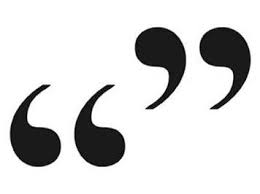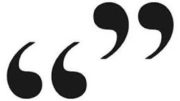I’m old enough to remember when some of the leftists I was acquainted with were fervent defenders of freedom of speech. They understood that in order to get their socialist message over to the public there needed to be an environment where such ideas could be freely discussed. Discussion they believed would allow the logic, as they saw it of socialism, to be displayed and therefore freely chosen by the masses. Now I may no longer agree with most if not all socialist ideas, they go too wrong too often and too murderously for me to support them any more, but I still agree with freedom of speech. The only way to sort the wheat from the chaff when it comes to ideas and politics is to debate such matters freely and openly. Sadly the left, or what passes for it these days, are hostile in the extreme towards the idea of freedom of speech.
One example of how the modern left has expressed its hatred of freedom of speech are the deranged meltdowns that so many public leftists have had over Elon Musk’s purchase and management of Twitter. The middle class left, what in the UK we would call the ‘Islingtonian Left’, the left that keeps its hand on the tiller of mainstream culture, is absolutely terrified of not controlling the narrative and it really shows.
The fear of the masses being able to speak freely is summed up pretty well by Lauren Smith writing for Spiked Magazine when she said in her piece on the Musk derangement syndrome that:
The fact that woke leftists are terrified at the prospect of Twitter users being allowed to say and read what they like is telling. It shows that what they really oppose here is free speech itself, and that this opposition is driven by a contempt for the general public. The cultural elites seem to think that ordinary people cannot be trusted to critically digest the content they see online. It is the public, not Elon Musk, who they really fear.
Spot on there Ms Smith. Cultural elites, whether they are from the present or the past, dislike the masses and want to hang on to their self appointed role in society as cultural, moral, religious or political arbiters and gatekeepers. We saw similar cultural leaders wailing and rending their garments in the 1950’s and early 1960’s over the introduction of commercial television in Britain. Lord Reith, the first Director General of the BBC after it was taken into public ownership in the 1920’s, in a speech to the House of Lords in 1961 bemoaned greatly the introduction of commercial television to the UK. He looked with utter disdain on the various pressure groups that sprung up to promote competition in broadcasting in the early fifties and said at the conclusion of his speech:
I end, my Lords, by putting, with great respect but with great urgency and appeal, five simple questions to the noble and learned Viscount The Lord High Chancellor—not as a Party leader, but as high custodian of British proprieties, political, constitutional and moral: (1) Does he approve of commercial television?; (2) If he felt the B.B.C. monopoly should be disrupted, were there not other and better ways of doing it?; (3) Does the noble and learned Viscount approve of what was done by the pressure group ten years ago?; (4) Does he approve of what is being planned and done now by way of discrediting and baulking Harry Pilkington’s Report?; (5) Does he approve of the Conservative Central Office being used as it was ten years ago? My Lords, I beg to move.
From my vantage point today of Lord Reith’s words back then before I was born I can see a few similarities between the disgust felt by Lord Reith at the prospect of commercial broadcasters producing programmes that might appeal to the common man and possibly reflect their views and the furore over Twitter. The Left of today who are bemoaning free speech on Twitter are all too much like the broadcasting elites of the BBC in the forties and early fifties. Like the early fifties BBC and its domination by the Reithians, the Twitter left have had had full control of what was broadcast on the platform, what particular individuals the public saw and what viewpoints were allowed and which were not. The middle class left have previously set the tone of Twitter despite not being representative of the majority of public opinion just as cultural elitists such as Lord Reith set the tone for the BBC in the days before the BBC had any competition.
Ms Smith is correct in her diagnosis of what perturbs the liberal left about Twitter. It’s a hatred of the general public and a fear that when the ideas of the liberal left are allowed to be challenged, then such ideas might find themselves pulled apart and their inconsistencies and bad outcomes exposed.





I think that in your opening statements you explain why the modern left hates free speech.
In the “old days” the left thought that free speech allowed them to, as you put it, ” get their socialist message over to the public… . Discussion they believed would allow the logic, as they saw it of socialism, to be displayed and therefore freely chosen by the masses.”
Modern leftists have realised that since they “own” the the sphere of public discourse, and that despite the multiple murderous failures of socialism/communism, free speech is now an opportunity for people opposed to their so-called “progressive” (i.e. regressive, destructive, nihilistic) agenda to oppose their views.
So of course they now oppose free speech.
It simply makes me wonder if their earlier advocacy was a matter of considering free speech a vehicle for them, so be discarded once it had, in their opinion, served its purpose.
To paraphrase (Erdogan, I think, speaking of democracy) “Free speech is like a train. You get off once you reach your destination.”
When you look at how socialists have for example appropriated the word ‘freedom’ as a slogan only to ditch it as soon as they get into power then maybe you are correct and that for some socialists free speech is only a means to an end and something to be done away with when they gain power. However I believe that those leftists I associated with in my youth who did believe in free speech were sincere, it’s the modern Left with their speech codes and naked hatred of opposing opinions who are vehemently opposed to free speech.
My position has always been that if you feel the need to censor views that are opposed to your own, it is an admission that you hold views that can’t be defended. Why hold them then? You can either look at things from all sides and revise your opinions on receipt of new information, or just stay wrong.
Exactly! There’s also the situation as I see it on the left where those invested in certain types of leftist views see themselves as part of a virtuous class and defend that self image with authoritarianism, exclusion of other viewpoints and with censorship. In a way this desire to defend a position in the face of a challenge that might bring the position or the policy down or cause a person to question their position looks like an attack. The modern left desire for censorship is elitist in the extreme and is reminiscent of the censorship by the elites in the 1930’s of UK press coverage of the early stages of the Abdication Crisis. The political and religious establishment of the time were to me very worried about the effect that a King who lived as a known libertine would have on general public morality.
You cant’ live in bubbles which is why I try to use as many different sources but ones that seem reliable as possible.